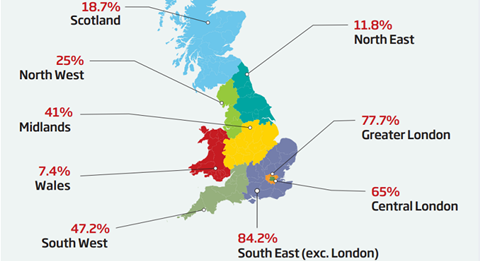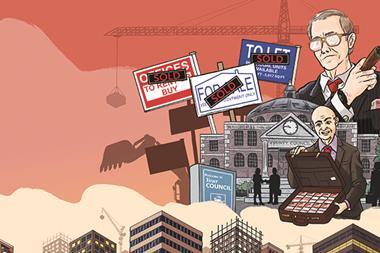The ‘so far, so good’ post-referendum economic picture continued through the end of 2016. The IHS Markit’s Purchasing Managers’ Index (PMI) for December showed a rise in all-sector activity to a 17-month high.

Encouragingly for offices, PMI data for the services sector was the highest since July 2015. Likewise, new orders in the construction sector saw the largest increase for 11 months.
Retail data for Christmas trading will be released over coming weeks, but initial results at the time of writing, particularly from the value end, have been positive. There has been the usual short selling of certain retailers as hedge funds circle brands increasingly going out of fashion, but that’s an annual hedge fund tradition.
Overall, the UK economy has started 2017 with good momentum behind it and, against that positive backdrop, equity markets are bullish.

The property industry as a whole also seems to have entered the new year with a degree of optimism and there is ample evidence of transactional activity.
The question is how stable this positive trajectory is and how long it will continue. Two themes are worth commenting on: Brexit uncertainty and interest rates.
The property industry has entered the new year with a degree of optimism
The forthcoming triggering of Article 50 of course provides plenty of uncertainty. That said, how much more uncertainty do we face in reality, compared with what we faced in January 2016? We know that Donald Trump is going to be the next US president.
We know that Article 50 is in all likelihood going to be triggered in the spring. We know that the government’s negotiating stance at the point of triggering Article 50 will be vague and that we won’t have clarity on the outcome of those discussions until 2019 or later.
But importantly, we are not faced with the speculation of a referendum result to muddle through and distract. The triggering of Article 50 will make headlines when it comes, but it seems unlikely that the following day will see any seismic shift in investor sentiments or attitudes unless - as seems very unlikely - the majority are still betting on Brexit never playing out.
Lack of clarity
What is more damaging is a lengthy period during which the UK is perceived to have no preferred Brexit outcome. The longer without any clarity on what politicians are prioritising in the Brexit negotiations, the more impatient key decision-makers across the private sector will become.
The true economic effects of Brexit, for better or for worse, will be felt over the medium to longer term but, as has been evidenced in the latter half of 2016, should threaten no further surprise shocks to the investor or lender.

A greater shock may come from the inflationary and interest rate environment. Sterling’s weakness and the oil price rally have led to a range of CPI forecasts of upwards of 3%. Trump’s presidency is also likely to be inflationary, with the term ‘Trumpflation’ now in the economist’s lexicon.
While sterling has made some recovery following the referendum in June, currency markets remain jittery and tend to swing on any whiff of news about Theresa May’s Brexit negotiating stance.
Retailers are already blaming GBP weakness for squeezed profits (including, strangely, Jamie’s Italian), paving the way for prices moving upwards.
For policymakers to change tack from the loose environment and initiate material change, there would have to be something of an inflationary shock.
Even then, the current historically wide spread between gilt yields and property yields of around 400bps should provide some buffer against increased rates forcing property yields to widen.
That said, inflation in and of itself will squeeze household incomes and restrict spending. On the back of the increase in medium- to longer-term interest rates evident last year, residential mortgage lenders are reported to be winding back their ultra-low-rate deals so household mortgage servicing costs may start to rise, further restricting consumer spending.
However, the UK economy has a strong tailwind behind it and there is reason to be optimistic that it will ride out much that 2017 may bring. Let’s hope it carries on as the year has begun.






























No comments yet